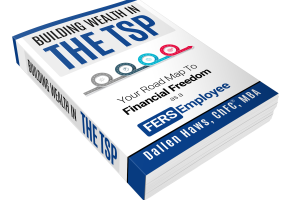I recently got this interesting question from a subscriber:
“Should I retire at 60 vs. 62? I know that I’d get the FERS supplement if I retire at 60 but I’d get the 10% pension bonus if I retire at 62. How do I do the math to know which one would be better?”
Well, I did the math and the difference is way bigger than I would have ever thought.
Let’s Get a Couple Things Straight
Before we can truly understand the math difference between these two choices we have to understand who is even eligible for either option.
Who Gets the FERS Supplement?
The FERS Supplement is an additional monthly payment that some federal retirees receive in the first part of retirement.
But the only people that are eligible to get this extra payment have to meet one of the following criteria:
Have at least 30 years of service and be at least their MRA (minimum retirement age).
Have at least 20 years of service and be at least age 60.
If you are eligible to receive the FERS supplement then you will continue to receive it until age 62 at which point the payments will stop.
Here is the ultimate guide to the FERS supplement if you’d like to learn more.
However, the rules for special provisions (firefighters, air traffic controllers, law enforcement, etc.) are different and this article is about how the FERS supplement works for you.
Who Gets the 10% Pension Bonus?
All traditional FERS employees who retire after age 62 with at least 20 years of service get a 10% increase to their pension when they retire. If you retire before 62 or with less than 20 years then you would not be eligible for this bonus.
This 10% increase will last for as long as your pension does.
You can find more details about how your pension is calculated and how the 10% bonus works here.
Which One is Better?
So now that we understand the basics of both options, which one is better in the long run?
Let’s run the numbers together to find out.
Retiring at 60 for The FERS Supplement
For our example, let’s assume that you are 60 years old and have 20 years of service. You make 100k a year and are trying to decide if you should retire today to get the FERS supplement for 2 years or retire at 62 to get the 10% bonus.
If you retired today then your gross pension would be calculated as follows:
20 years X 100k x 1% Multiplier = $20,000/year or $1,666/month
For a deeper understanding of how your pension is calculated, check out this article.
But as we know, by retiring at age 60 with at least 20 years of service then you’d also be eligible for the FERS supplement. And to calculate your FERS supplement we’ll need to know what your age 62 Social Security would be.
For this example, let’s say your age 62 Social Security benefit would be about $2,000/month.
Your gross FERS Supplement would be calculated as follows:
20 years of service / 40 X $2,000 = $1,000/month
And because your FERS supplement payment would stop at 62, this means that you would get 24 months of payments which would total $24,000 over that time.
To learn more about how the FERS supplement is calculated, check out this article.
Retiring at 62 for The 10% Bonus
Now let’s look at the numbers if you continued to work until age 62 to compare.
We know that retiring at or after 62 would mean that you would not get the FERS supplement but because (in this example) you will have 22 years of service at 62 that would mean that you would get the 10% bump to your pension.
Your gross pension would be calculated as follows:
22 years X 100k x 1.1% Multiplier = $24,200/year or $2,016/month
This means your gross pension would be $4,200/year higher because you worked the extra 2 years.
Learn how to calculate your net pension here.
But how long would it take for our higher pension to make up for the fact that we didn’t receive the FERS supplement for 2 years?
We calculate it by dividing the amount we would get from the FERS supplement by the extra we get from our higher pension.
$24,000 (2 years worth of FERS Supplement) / $4,200 (increase in pension) = 5.7 Years
So as the math shows, it would take only 5.7 years to fully earn back everything you missed from not getting the FERS Supplement and then you would continue to receive the extra $4,200 for the rest of your life!
This is a guaranteed 17.5% return on your investment for the rest of your life.
Final Thoughts
When we just look at the numbers, it is clear that working until 62 is better. And on top of that, we didn’t even talk about the extra you would have saved in your TSP or the fact that your pension cost of living adjustments would be based on your higher pension amount!
But with all that said, the major cost of working until 62 is the fact that you have to work 2 extra years! For some people, (especially those that enjoy their job) this may be no big deal but for others working 2 more years can sound absolutely terrible.
At the end of the day, you will have to decide when you are comfortable enough with your retirement numbers to pull the plug and retire. Your retirement numbers would always improve by working longer but at a certain point it is simply not worth it anymore.
You have to decide where that point is.


